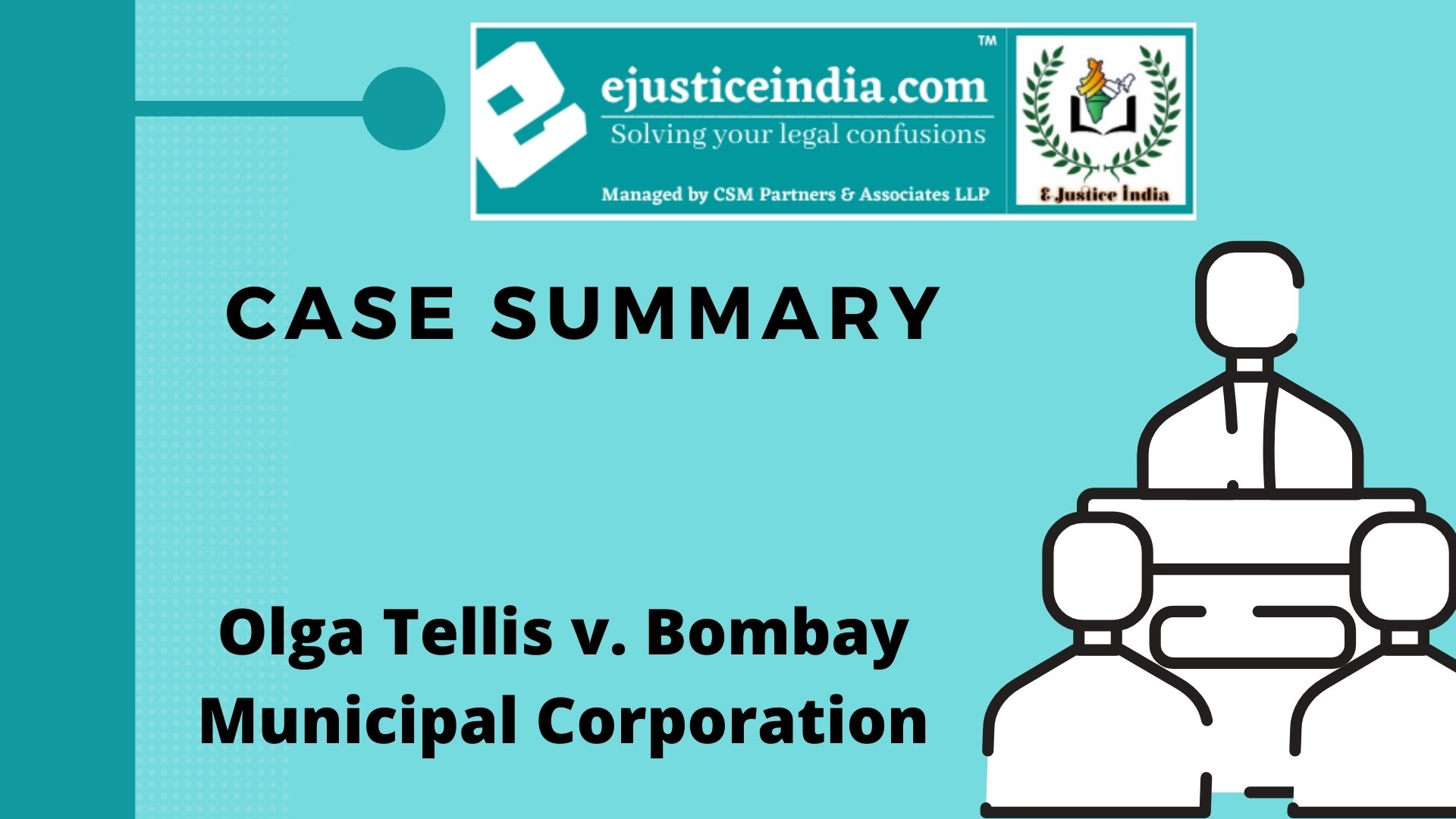Case Summary: Priya Patel vs. State of Madhya Pradesh & Anr on 12th of July, 2006.
Author: ANUSHA C GUDAGUR
CITATION:
6 SCC 263
BENCH:
Justice Arijit Payasat, Justice S.H. Kapadia
INTRODUCTION:
The case of Priya Patel vs. State of Madhya Pradesh stands as the landmark case for being the only case where the question of, whether a woman be prosecuted for gang rape has been taken up. It was an appeal before the apex court which was filed against the decision of High Court of Madhya Pradesh. The High Court of M.P had observed that, though a woman cannot commit rape, but if she facilitates the commission of rape, then she could be prosecuted for gang rape given under Section 376 of the Indian Penal Code. Thus, the appeal in the present case was before the Supreme Court of India for deciding whether a woman can also be prosecuted for commission of gang rape.
FACTS OF THE CASE:
A prosecutrix was going back after attending a sports meet by Utkal Express. When she reached her destination at Sagar, the accused Bhanu Pratap Patel (husband of the accused appellant) met her at the railway station and told her that her father has asked the accused to pick her from the station. The prosecutrix was suffering from fever, because of that she agreed to it and accompanied the accused Bhanu Pratap Patel to his house. Later, at his house he raped her. When he was still committing rape on her, the wife of the accused, the appellant Priya Patel, reached there. The prosecutrix requested his wife, the appellant to save her. But she instead of saving her, slapped her, closed the door of the house and left the place of incident. The complaint was lodged and on its basis the investigation was undertaken, and also the charge-sheet was filed. The accused was charged for offences punishable under Section 323(punishment for causing hurt voluntarily) and Section 376 (punishment for rape) of IPC while, the appellant was charged for commission of offences punishable under Section 323 and Section 376(2) (gang rape) of the Indian Penal Code. The Supreme Court allowed the appeal.
ISSUES AND FACTS OF LAW:
- Whether a woman be prosecuted for commission of gang rape.
- Whether the woman (accused appellant) be held for abetment of the crime as given under Section 108 of IPC.
Just a bare reading of Section 375 of IPC makes it crystal clear that rape can only be committed by a man but not by a woman. Section 376(2) involves more serious nature of rape (as defined under Section 375) and gang rape which is given under 376(2)(g) attracts more severe punishment than rape. The explanation for this provision states that when a woman is raped by one or more persons in a group acting in furtherance of their common intention, then each person belonging to such group be held liable for commission of gang rape. This Section also cannot make a woman guilty of committing rape.
Also the “common intention” as dealt under Section 34 of the IPC provides that when a criminal act is done by two or more persons in furtherance of common intention, each of such persons shall be held liable for that offence, as if it was committed by him alone. But in this case, the common intention to commit rape has been taken into note. But a woman cannot have an intention to commit rape as provided by the provisions of IPC, a woman cannot be prosecuted for rape, was what contended on behalf of the accused appellant.
JUDGEMENT:
- The Supreme Court held that, after referring to Section 375 of the Indian Penal Code, it is clear that rape can be committed by male only. However, the explanation to section 376(2) merely indicates that when one or more persons act in furtherance of their common intention to rape and each person of the group including a woman, if she is one of them, must be deemed to have committed rape.
- The rule is based on common intention as provided in the Section 34 of the IPC. Common intention refers to any act done in postulation based on a pre-planned arrangement or with the prior meeting of minds. When this Section is applied to the Section 376(2)(g), it may require fulfilment of common intention for the commission of rape. But such an intention may not exist with a woman, as given in the definition, hence, a woman may not be held liable for the commission of gang rape.
- For the contention raised by the counsel for the respondents, the woman may be held liable for abetment under Sec 108 of IPC for abetting the commission of rape by her husband, the appellant. The Court observed that, the question of abetment should have been raised in the High Court or the lower Courts but cannot be raised newly in the Supreme Court.
- Therefore, the woman was held not guilty for commission of gang rape given under Section 376(2)(g) as it is conceptually inconceivable, as per the definition of rape provided under Section 375, IPC.


